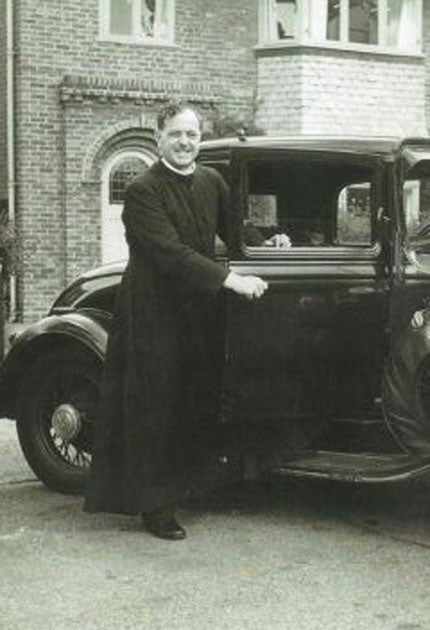The Rev Prebendary Gerard Irvine: High Anglican priest whose ministry encompassed London’s literary world

Your support helps us to tell the story
From reproductive rights to climate change to Big Tech, The Independent is on the ground when the story is developing. Whether it's investigating the financials of Elon Musk's pro-Trump PAC or producing our latest documentary, 'The A Word', which shines a light on the American women fighting for reproductive rights, we know how important it is to parse out the facts from the messaging.
At such a critical moment in US history, we need reporters on the ground. Your donation allows us to keep sending journalists to speak to both sides of the story.
The Independent is trusted by Americans across the entire political spectrum. And unlike many other quality news outlets, we choose not to lock Americans out of our reporting and analysis with paywalls. We believe quality journalism should be available to everyone, paid for by those who can afford it.
Your support makes all the difference.The success of Gerard Irvine's ministry was due in part to his charm, hospitality and friendship. But underneath these there was a deep devotion to God within an Anglican Catholic framework, and a serious depth of theological learning which never became highbrow or pious. His sermons were clear, relevant and interesting to all. He was aware of, and influenced by, the Second Vatican Council; the only aspect of which he did not adopt was the idea of plain décor.
John Graham Gerard Irvine was born in 1920, the descendant of several generations of generals and the eldest son of five children of General and Mrs AE Irvine. He showed lively religious tendencies from the age of two, and these lasted throughout his life: for him religious faith and practice were as natural as life itself. Yet this did not disqualify him for friendships and ministry in a culture of doubt and disillusion.
Up at Merton College, Oxford, from 1939, he acted with Michael Flanders, and in a Peter Brook film. He published a book of poems (the only book he ever wrote, marking a Gothic phase before he discovered his true love, the baroque) and took a first in Theology. As well as reviews for Time and Tide, he wrote for The Daily Telegraph.
An an undergraduate he found himself becoming a character in a Sebastian Flyte-like mould, but without ever being suspected of being a poser or misfit. He had the secret of being lovable, and of loving other people, across the social scale. His friendships ranged from spies and politicians – Maurice Oldfield, Harold and Mary Wilson, Tom Driberg and Frank Field – to literary figures like Rose Macaulay, John Betjeman, Iris Murdoch, PD James and AN Wilson. There were also popular figures like Tony Warren, the inventor of Coronation Street, and the teenagers in his youth club at Holy Angels, Cranford (then a Nissen hut overflown by the planes from the new London Airport), some of whom were still in touch years later.
He ministered with equal success in Knowle, Bristol, in the Potteries, at St Anne's Soho, Earls Court, and finally at St Matthew's, Westminster, which he enjoyed rebuilding in stunning baroque style after a fire. How was this done? Hospitality is part of the answer, and especially his Sunday teas at St Cuthbert's; on one occasion Arthur Macmillan, brother of the Prime Minister, was surprised to find himself with a group of topless dancers. One of the joys of visiting him was the furnishing: Anthony Powell, in his Journals, writes of going to lunch at St Matthew's: "The clergy house was somewhere between a Firbank novel and Cruikshank's illustrations of The Old Curiosity Shop."
Irvine was an active and stimulating priest: people at Cranford remember the plays he put on, and the Beaumont Jazz Mass performed by the Eton College Jazz Band. No one knows all the details of his relationships with the leaders of politics and culture of the 20th century but perhaps Irvine's joyful and thoughtful face offered something important in an age of doubt.
Rose Macaulay wrote of him: "a clever young prophet, very good company too." Like Macaulay, Irvine supported the ordination of women. In retirement Irvine spent happy years in Brighton, involved in his local parish church and living with his sister Rosemary, with whom he had a lifelong friendship, though their careers sometimes took them apart.
Prince Leopold of Loewenstein wrote of his wife's funeral: "The Christian message of life everlasting which Gerard Irvine chanted in triumphant tones as he walked ahead of the procession along the sunlit path, has never rung more true."
John Graham Gerard Irvine, priest: born 19 November 1920; died 13 January 2011.
Join our commenting forum
Join thought-provoking conversations, follow other Independent readers and see their replies
Comments